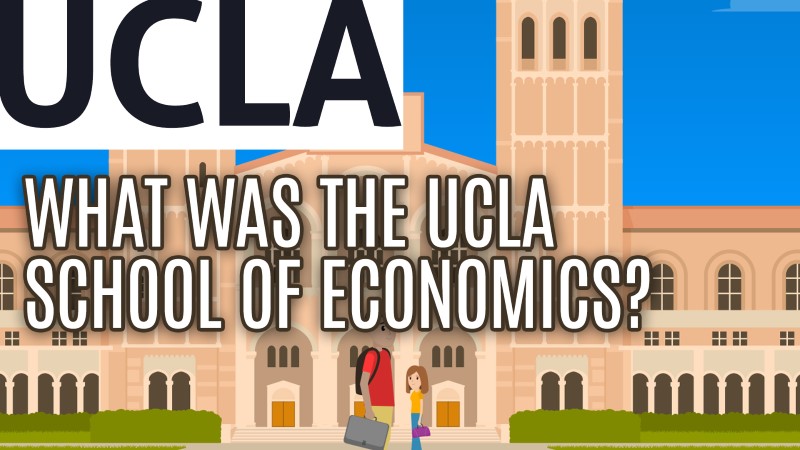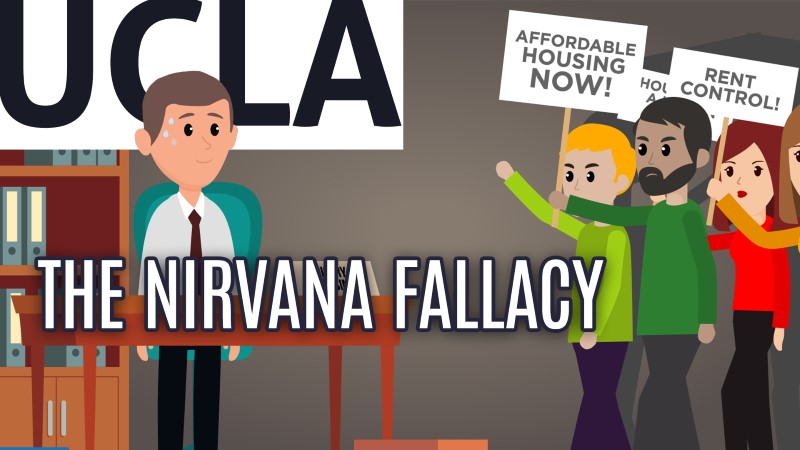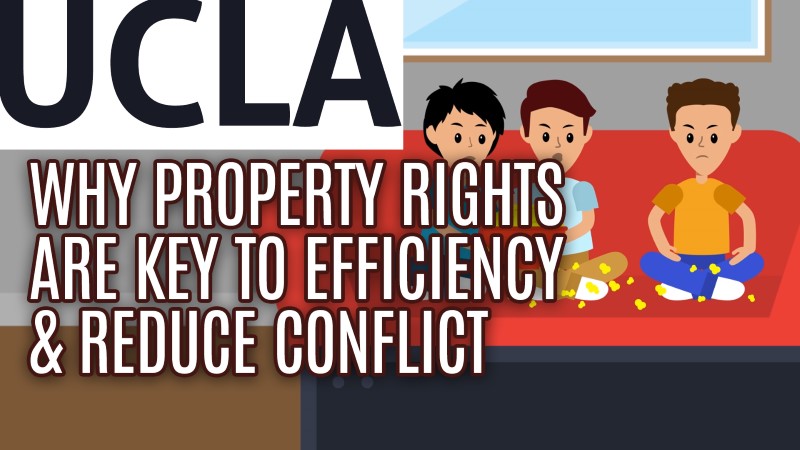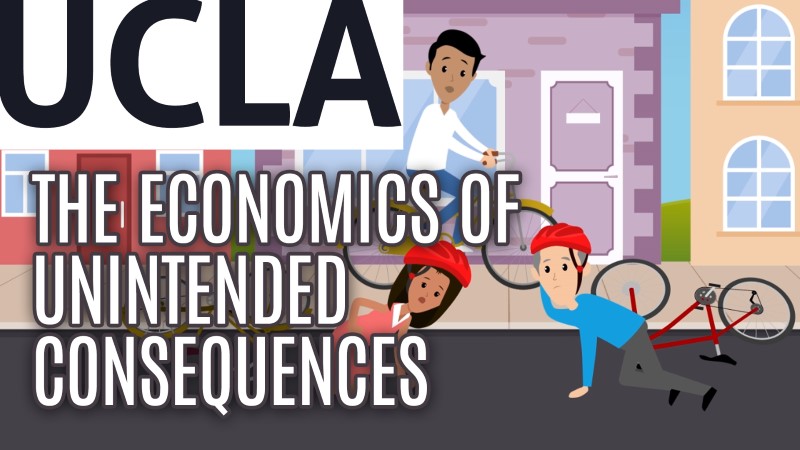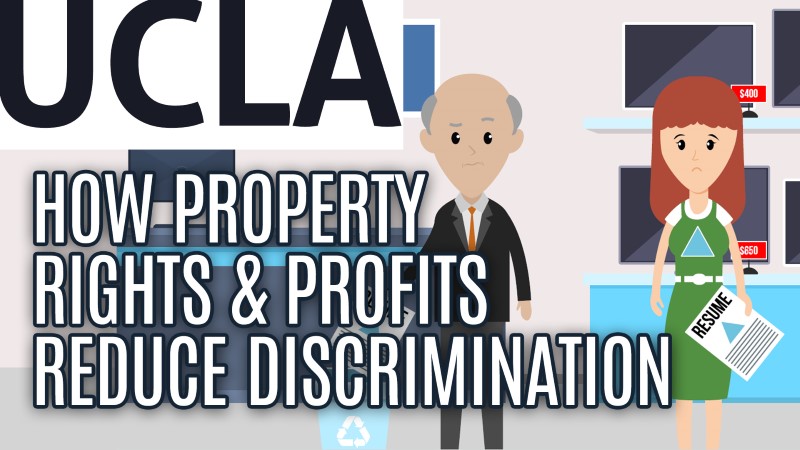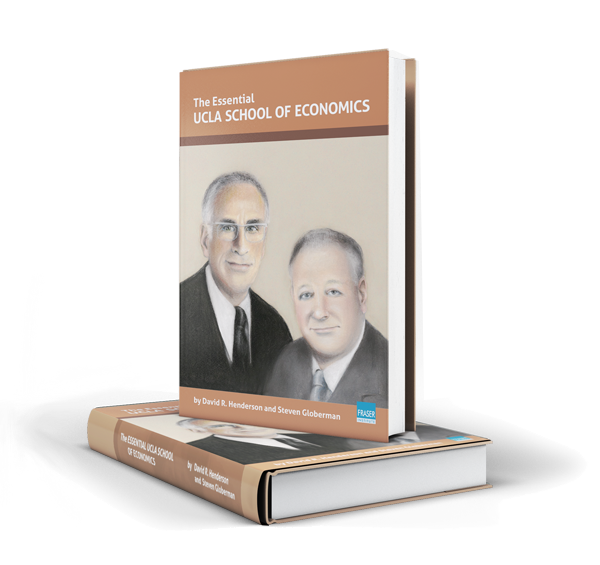by David R. Henderson and Steven Globerman
The UCLA tradition carries on in the work of dozens of economists who earned their PhDs at UCLA during its golden years. Because their work spread beyond UCLA, the tradition lives on in the work of scores of economists who had no formal connection with the School. The most important economists at UCLA during the 1970s were Armen Alchian, Harold Demsetz, Sam Peltzman, Benjamin Klein, Robert Clower, Axel Leijonhufvud, Jack Hirshleifer, William Allen, and George Hilton.
A distinguishing feature of most of the UCLA economists’ contributions is that they were non-mathematical. This was especially notable in an era in which mathematics had almost taken over economics. The major UCLA School contributors used mainly words and occasionally graphs. Another distinguishing feature is their use of basic economic analysis to understand behaviour that had previously not been understood or had even been misunderstood.
The best-known member of the School, Armen Alchian, taught at UCLA from 1946 until his retirement in 1984. His insights and writings underlie a distinctive theme of the School’s approach to economics: in most productive activity, the profit motive, combined with private property rights, successfully aligns the interests of producers and consumers, often in subtle ways. Alchian had no use for formal models that did not teach us to look somewhere new in the known world. Nor had he any patience for findings that relied on fancy statistical procedures. Alchian saw basic economics as a powerful tool for explaining much of human behaviour in both market and non-market settings.
The second most prominent member of the UCLA School was Harold Demsetz, who made major contributions to the study of property rights and to regulation and antitrust policy. He argued that market concentration could reflect the superior efficiency of firms with large market shares primarily resulting from innovation or from economies of scale. Government efforts to break up large firms or restrain their growth was, therefore, likely to reduce innovation and economic efficiency, with consequent harm to consumers.
Other academic research at the UCLA School included Klein’s work in monetary theory, and Clower and Leijonhufvud’s work in macroeconomics. Another famous UCLA School economist was Thomas Sowell, who wrote his 1975 book Race and Economics, a precursor to his much more extensive work on the economics of various ethnic groups, while at UCLA.
Listen In
Listen to the Essential Scholars Explained podcast with host Rosemarie Fike in conversation with David Henderson of the Naval Postgraduate School to discuss the UCLA School.
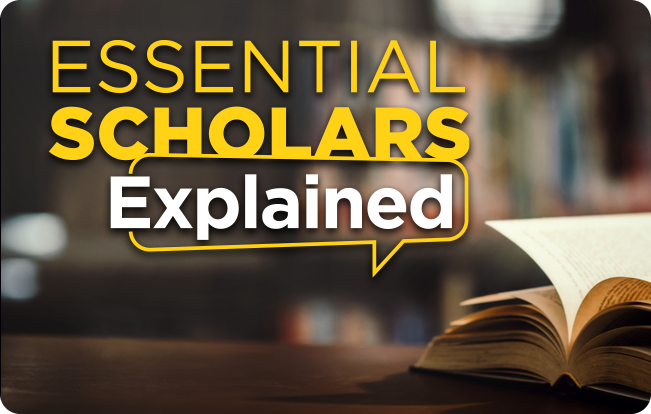
Key Insights of UCLA—Part 1: Why the profit motive is better for industry and better for people
David Henderson, emeritus professor of economics with the Naval Postgraduate School in Monterey, California, and host Rosemarie Fike dive right into conflict aversion in school, in the home, and even discuss how the UCLA school illuminated how the profit motive helps reduce discrimination by automatically imposing a penalty on those who do.
Key Insights of UCLA—Part 2: Why good economics is not often good politics
Steve Globerman, professor emeritus at Western Washington University and senior fellow as well as the Addington Chair in Measurement at the Fraser Institute, joins host Rosemarie Fike to continue the discussion on the UCLA school of thought, including rent control, the housing crisis, the arguable role of city governments, and maintaining quality of life.
Key Insights of UCLA—Part 3: Markets and Social Issues
David Henderson—emeritus professor of economics with the Naval Postgraduate School in Monterey, California—and Steve Globerman—professor emeritus at Western Washington University and the Addington Chair in Measurement at the Fraser Institute—both join Rosemarie Fike once more to talk about why the UCLA school of economics has remained relevant in today's world. Especially how even when it comes to social issues, companies are ultimately bound by the preferences of their consumers.
Download the Book
Get a digital copy of the book. Choose the version you prefer below.
Explore the Book
Chapter by chapter summary of the book.
-
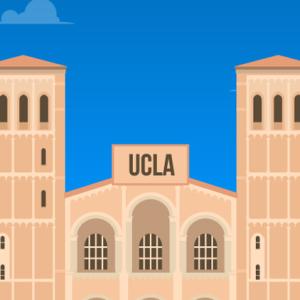
Chapter 1
What was the UCLA School?
The UCLA School of economic thinking was a strong free-market tradition in late twentieth century economics. Some who observed it from a distance humorously referred to UCLA as “the University of Chicago at Los Angeles.” In some ways it was almost as strong as the University of Chicago School, whose most notable members in the 1960s and 1970s were Milton Friedman, George Stigler, and Gary Becker. In other ways, the UCLA School was even stronger. Armen Alchian, in particular, was one of a kind. His relentless application of economic analysis, especially analysis of property rights, was not replicated anywhere else. In the area of property rights, Harold Demsetz was a close second. The UCLA School was at its zenith from the mid-1960s to the late 1980s.
The UCLA tradition carries on in the work of dozens of economists who earned their PhDs at UCLA during its golden years. Also, because the work spread beyond UCLA, the tradition lives on in the work of scores of economists who had no formal connection with UCLA.
-

Chapter 2
Can Property Rights Help Us Understand People’s Actions and Even Reduce Conflict?
Should restaurants allow smoking or not? Should schools teach evolution or intelligent design or both? Should insurance companies cover contraception? Should we be able to take off our shoes in your living room?
You might think that that last question doesn’t belong with the first three. After all, the first three questions are momentous ones about “public policy.” The last one is only about the rules you have for our behaviour in your living room—a “private policy” question. And your answer to that question will depend on how you want to use your property.
-

Chapter 3
How the Profit Motive Reduces Racial and Other Discrimination
The legal ability of owners of private property to use their human and physical assets to earn income, combined with competition from other owners of similar assets, creates a powerful incentive for those assets to be used efficiently. This is perhaps the most well-known argument for free markets. This is certainly a major theme underlying much of the research done by members of the UCLA School.
-
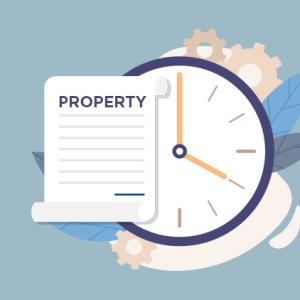
Chapter 4
When Do Property Rights Come About?
When and why do property rights come about? It’s an important question but it was relatively unstudied by economists before the UCLA School got its hands on the issue. A pathbreaking article that gave an answer was Harold Demsetz’s 1967 “Toward a Theory of Property Rights” published in the American Economic Review.
-

Chapter 5
Firms Exist to Solve Problems
Economists have long been interested in the following issue: why are some types of economic activity carried out within individual organizations, while other types of economic activity are carried out through market exchanges between independent organizations or individuals. The obvious answer is that if it is more efficient to carry out transactions within the boundaries of a single organization it will be done that way, and when it is not, transactions will be carried out between independent economic agents. But why are some transactions carried out more efficiently within organizations than between organizations? It also raises a related question: why do organizations take different forms? For example, why are so many law firms and accounting firms organized as partnerships or limited liability companies while others are organized as corporations with publicly traded stocks? And why does organizational form matter?
-

Chapter 6
The Nirvana Approach
In the now-famous article quoted above, Harold Demsetz, then back at the University of Chicago after his earlier time at UCLA, presented the “nirvana approach” and contrasted it with the “comparative institution” approach. His term “the nirvana approach” has become famous and most economists who discuss it currently refer to it as the “nirvana fallacy.” The latter term has become so well known that it has earned its own entry in Wikipedia.
-

Chapter 7
Does the High Market Share of a Few Companies Imply Market Power?
Demsetz and Peltzman’s work primarily provides empirical evidence challenging the conventional wisdom that antitrust authorities should discourage or prevent mergers and acquisitions because allowing only a smaller number of firms in a market will primarily result in higher prices that hurt consumers. The UCLA School also provides novel theoretical explanations for why mergers and acquisitions could improve economic efficiency, thereby making consumers better off.
-

Chapter 8
Regulation: The Economics of Unintended and Intended Consequences
One of the UCLA School’s main contributions to our understanding of the regulatory process is that it shows how regulators behave. Rather than acting as all-knowing promoters of the social good, regulators act in their own self-interest. Specifically, while in their positions, regulators seek to maximize political support, which translates into more secure on-the-job tenure, larger agency budgets and higher salaries, and greater immunity from the scrutiny of legislators.
-

Chapter 9
Do Firms Need to Maximize for the Model to Fit?
The setting for Alchian’s article, his first major submission accepted by a top journal, was a heated debate in economics journals in the 1940s about whether it was reasonable to assume that firms maximize profits. Defenders of that assumption argued that firms acted as if they maximized profits. Some critics of the assumption argued that the fact of uncertainly meant that they couldn’t maximize profits. Alchian took a different perspective from that of either the defenders or the critics. He did not argue that firms act as if they maximize profits. And he agreed with one critic, Gerhard Tintner, that when firms’ managers cannot have certainly, the very concept of profit maximization is suspect.
-

Chapter 10
Can Economies Recover Quickly from Disaster?
Jack Hirshleifer, one of the key members of the UCLA School, was ever the empiricist. In the early 1960s, when decision-makers in the US military were concerned about the after-effects of a nuclear war, Hirshleifer did a pioneering study for the US Air Force on the “causes, characteristics and consequences of important historical disasters.” The study, formally titled RAND Corporation Memorandum RM-3079-PR, was published in April 1963 and was later reprinted in his 1987 book Economic Behaviour in Adversity.
While works of fiction often depicted a descent into savagery after a major catastrophe, Hirshleifer found the opposite: when property rights were fairly secure and governments avoided economy-wide price controls, societies were relatively peaceful and economies recovered quickly.
-

Chapter 11
Concluding Comments
Scholars often see the economists of the UCLA School as ferocious defenders of free markets. They typically are. However, the claim should be qualified. Leading researchers of the UCLA School never claimed that free markets operate perfectly and always achieve textbook efficiency. As the earlier chapters in this book have shown, Alchian, Demsetz, and other members of the School acknowledged that phenomena such as imperfect information, transactions costs, and opportunism are pervasive. The critical issue that such phenomena raise, given real-world conditions, is whether a system relying upon well-defined property rights and private transactions results in more-efficient economic outcomes than a system that relies upon government proscriptions and regulations. The major contribution of the economists from the UCLA School is their careful and wide-ranging explanations and demonstrations of how and why private property rights and market competition are typically the most efficient institutional arrangement in an imperfect world characterized by scarcity.
About the Author
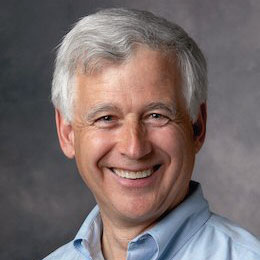
David R. Henderson
David R. Henderson is an emeritus professor of economics with the Naval Postgraduate School in Monterey, California, a research fellow with the Hoover Institution, and a senior fellow of the Fraser Institute.
Professor Henderson is a widely respected public policy expert and educator. He is also the editor of The Concise Encyclopedia of Economics, a comprehensive but accessible summary of economics.
Born and raised in Canada, Professor Henderson earned a B.Sc. degree in mathematics from the University of Winnipeg before heading south to complete his Ph.D. in economics at the University of California, Los Angeles.
He is a frequent contributor to The Wall Street Journal and was previously a frequent contributor to Fortune. He has also written scholarly articles for the Journal of Policy Analysis and Management, Journal of Monetary Economics, Cato Journal, Regulation, Contemporary Policy Issues, and Energy Journal.
Professor Henderson served as a senior economist on President Reagan’s Council of Economic Advisers from 1982 to 1984, specializing in energy and health policy.
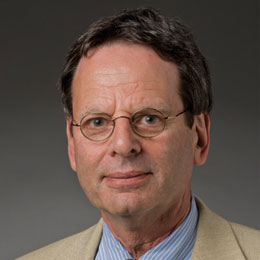
Steven Globerman
Steven Globerman is Resident Scholar and Addington Chair in Measurement at the Fraser Institute as well as Professor Emeritus at Western Washington University. Previously, he held tenured appointments at Simon Fraser University and York University and has been a visiting professor at the University of California, University of British Columbia, Stockholm School of Economics, Copenhagen School of Business, and the Helsinki School of Economics.
He has published more than 200 articles and monographs and is the author of the book The Impacts of 9/11 on Canada-U.S. Trade as well as a textbook on international business management. In the early 1990s, he was responsible for coordinating Fraser Institute research on the North American Free Trade Agreement.
In addition, Mr. Globerman has served as a researcher for two Canadian Royal Commissions on the economy as well as a research advisor to Investment Canada on the subject of foreign direct investment. He has also hosted management seminars for policymakers across North America and Asia.
Additional Resources
Listed below are links to other websites where you can learn more about the UCLA School of Economics, their theories, written works, lectures, and interviews.
Listed below are links to other websites where you can learn more about the UCLA School of Economics, their theories, written works, lectures, and interviews.
Armen A. Alchian from EconLib
A brief history of economist Armen Alchian, a prominent figure in the UCLA school, from his time in the Air Force during WWII to his contributions to the field of economics, including his work on the learning curve in aircraft production, instances of overt discrimination in regulatory policy, and his most impactful contribution: the economics of property rights and how this can be applied to the incidence of discrimination.
Property Rights by Armen A. Alchian from EconLib
Alchian’s essay that details one of his most major scientific contributions to the economics of property rights, with a particular focus on discriminatory regulations and how the introduction of property rights can foster sharing and stewardship in society rather than selfishness.
Why Did Armen Alchian Have to Teach Economists About Property Rights? by Peter Boettke, from EconLib
A detailed essay by Peter Boettke discussing the significance of Alchian’s influential writings in economics, and how they contributed to political economy at large during a period when the property rights perspective in both fields was dwindling.
Armen A. Alchian from Encyclopedia Britannica
A short encyclopedic entry on Alchian’s life, philosophical and ideological leanings, and his scholarship in the field of economics (covering such topics as labour costs and property ownership).
Armen A. Alchian, 1914- 2013 from History of Economic Thought
A short biography of Alchian’s sparse but significant contributions, including a list of his major scholarship.
Armen Alchian from UCLA Economics
Alchian’s UCLA page, including his emeritus status and pioneering efforts that helped elevate UCLA’s economics department to one of the most respected in the country, as well as his time as part of the Rand Corporation.
Armen A. Alchian from the Online Library of Liberty
A reference page that acknowledges Alchian’s role as the founder of the “UCLA tradition” in economics, and his enduring influence in the areas of market structure, the theory of the firm, law and economics, resource unemployment, monetary theory and monetary policy. Includes links to additional information.
Armen Alchian - Property Rights from LibertyPen on YouTube
Famed UCLA economics professor Armen Alchian shares insights on property rights and the meaning of ownership.
Friedrich von Hayek and Armen Alchian Part I (U1008) - Full Video from Free to Choose Network on YouTube
A 40-minute video from 1978 of Armen Alchian engaging Nobel Prize-winning economist Friedrich A. Hayek in reminiscences that provide a uniquely personal and entertaining perspective on Hayek's life and work.
Friedrich von Hayek and Armen Alchian Part II (U1008) - Full Video from Free to Choose Network on YouTube
A 50-minute video from 1978 of Armen Alchian engaging Nobel Prize-winning economist Friedrich A. Hayek in reminiscences that provide a uniquely personal and entertaining perspective on Hayek's life and work.
Armen A. Alchian from the Independent Institute
A short history of Armen Alchian, his prominence as a founding figure in the UCLA school of economics that emphasizes that individual behavior is self-directed and "rational" and that this has many unanticipated consequences.
Harold Demsetz, 1930-2019 from EconLib
A brief biography of economist Harold Demsetz, detaling how Demsetz was one of the more prominent figures of the UCLA school, making major contributions to the economics of property rights and to the economics of industrial organization. This page also acknowledges how Demsetz coined the term “the Nirvana approach.”
The ideas of Harold Demsetz, 1930-2019 by Thomas N. Hubbard from VoxEU.org
This column, written by a friend and colleague of Demsetz, outlines some of his most influential ideas and characterises his thinking as rigorous, insightful and highly relevant to central problems in industrial organisation and business strategy today.
The Greatness Of Harold Demsetz by Richard A. Epstein from Hoover Institution
An article and obituary demonstrating the profound influence Demsetz had on his contemporaries, economic thinking in the 1970s and how it’s endured today, as his works penned decades ago remain essential reading for economists.
In Memoriam: Harold Demsetz, 1930-2019 from Forbes
An article about Harold Demsetz’s contributions to the field of economics, and as a “24-7 economist” whose work has timeless applicability.
A Conversation with Harold Demsetz from EconTalk on YouTube
An hour and a half-long video of Mark Grady, Professor at the UCLA School of Law speaking with Harold Demsetz, discussing his original research on the theory of the firm, regulation in markets, industrial organization, antitrust policy, transaction costs, externalities, and property rights.
The Legacy of Economist Harold Demsetz (1930-2019) from the Competetive Enterprise Institute
A blog post and obituary discussing Demsetz’s influence as one of the pioneers of New Institutional Economics, including testimonies from CEI staff about his impact.
Pioneers in Law and Economics: Benjamin Klein by Joshua Wright from the International Center for Law and Economics
A blog post covering the less recognized but immensely valuable contributions Klein has made to law and economics, focusing on his pioneering efforts regarding and understanding of antitrust on a global scale.
Brand Names by Benjamin Klein from EconLib
A commentary by Benjamin Klein on the impact brand names have on the information consumers take away from a product at face value as they attempt to navigate their otherwise incomplete information about product availability, quality, and alternative prices.
Robert Clower, 1926-2011 from the History of Economic Thought website
A short biography of Clower’s contributions to the field of economics, including his development of Disequilibrium Keynesianism, and a list of his major scholarship.
Robert Clower passes away at 85 from Marginal Revolution
An obituary detailing Clower’s influence as an economist and scholar, specifically for demonstrating how a lot of Keynesian concepts made microeconomic sense, even without invoking the macro notion of aggregate demand or IS-LM analysis, and his staunch opposition to “hydraulic Keynesianism.”
Jack Hirshleifer, 1925-2005 from the History of Economic Thought website
A short biography of UCLA economist Jack Hirshleifer, and his impact as one of the pioneers of the application of theories of uncertainty and information in economics.
Jack Hirshleifer from UCLA Economics department
A concise profile on Hirshleifer, his contributions to the UCLA department and more broadly the field of economics, as well as tributes from colleagues and former proteges.
George W. Hilton from the UCLA Economics department
A short tribute to economist and historian George W. Hilton from the UCLA economics department, covering his life from an undergraduate degree at Dartmouth College to his dissertation at the London School of Economics. Also includes his research focuses of steamboat inspection and the Eastland disaster and the Lake Michigan passenger steamship lines.
Essential Scholars is brought to you by
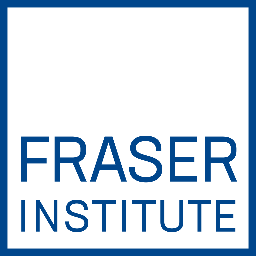
Fraser Institute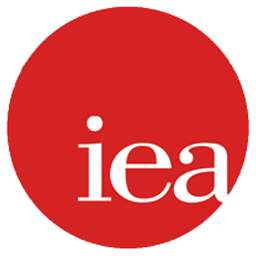
Institute for Economic Affairs
Institute of Public Affairs
Foundation for Economic Education
Acknowledgements
Made possible by generous grants from the Lotte and John Hecht Memorial Foundation, the John Templeton Foundation, and the Peter and Joanne Brown Foundation.






